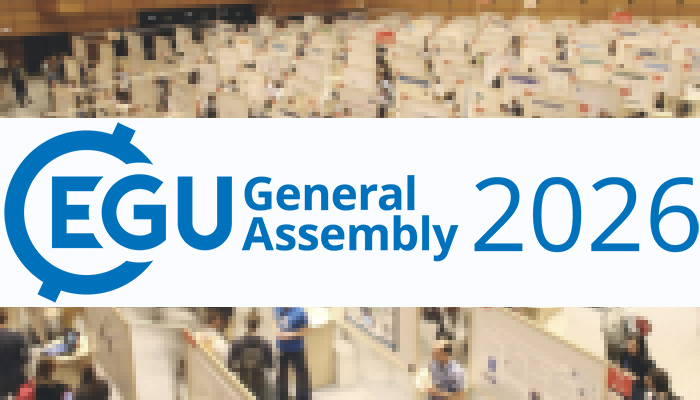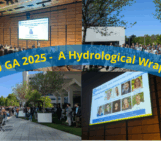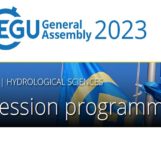
The call-for-session-proposals for the General Assembly (GA) 2026 was launched on July 29. We take the opportunity to encourage all members of the hydrological community to participate in shaping the next year’s conference programme and in particular early career scientists. (Co-)convening a session is a great experience and the perfect networking opportunity.
The Hydrology Division offers every year an exciting set of sessions, structured along the ten subdivisions and covering a wide spectrum of topics. Nevertheless, there are sometimes emerging topics that are less well covered by the proposed sessions and even traditional research topics might have gotten lost over the years (read the recent blog post by Maria Grundman regarding the missing water temperature community). Or perhaps you feel, e.g. as an early career scientist, that a session needs refreshing?
The open call-for-sessions is the perfect opportunity to bring in new session topics, to refocus existing sessions or to refresh and bring in new convener teams.
You have two options: you can suggest completely new sessions or make suggestions to already proposed sessions. These existing sessions are those that the subdivision chairs have implemented in collaboration with the previous conveners of their subdivision.
If you are a newcomer in terms of conference session organisation and would like to get involved, here a few hints on how we would proceed:
- First of all, read the convener guidelines of the GA 2025 to get an overview of what convening actually involves: https://www.egu25.eu/guidelines/conveners.html. Note that there will be a change in the HS1 main topic: the 2026 focus will be “Field hydrology“. If you are an experimental hydrologist going often to the field, this is where you want to position your session.
- Check the proposed sessions of the provisional skeleton programme in the call: is there a session that you would like to be involved in as a convener? There is a maximum number of conveners (5) per session but longstanding conveners are often happy to step down to ensure a certain turnover – do not hesitate to contact them directly.
- Check the last years’ hydrology programme: is there a specific topic that is not well represented that would justify a new session? If you decide to submit a new session, you might want to contact one of the science officers to seek advice on where your session topic would fit best or on how to shape your session description. Any early contact with the science officers facilitates their work during the programme completion after the open call.
- Shape your session topic (description): it should be narrow enough to bring together your target community but open enough to receive sufficient interest from the community – not an easy balance to strike! And do not forget: sessions should always be open to anyone, sessions targeted towards the results of a particular project are not acceptable.
- Next, you need to gather your convener team that should be as diverse as possible in terms of research topics, career stage, geographical origin, gender etc. For those of you with experience convening at the GA, why not include some early career researchers from your field that can be part of the team in 2026? The convener team is a key for the success of your session, to attract exciting contributions shedding new light on your topic or to ensure a lively session during the conference.
The Hydrology Division is looking forward to your suggestions! However, do not forget that not all sessions can be included in the call-for-abstract programme, but we can assure you that we do our best to consider all suggested topics.




